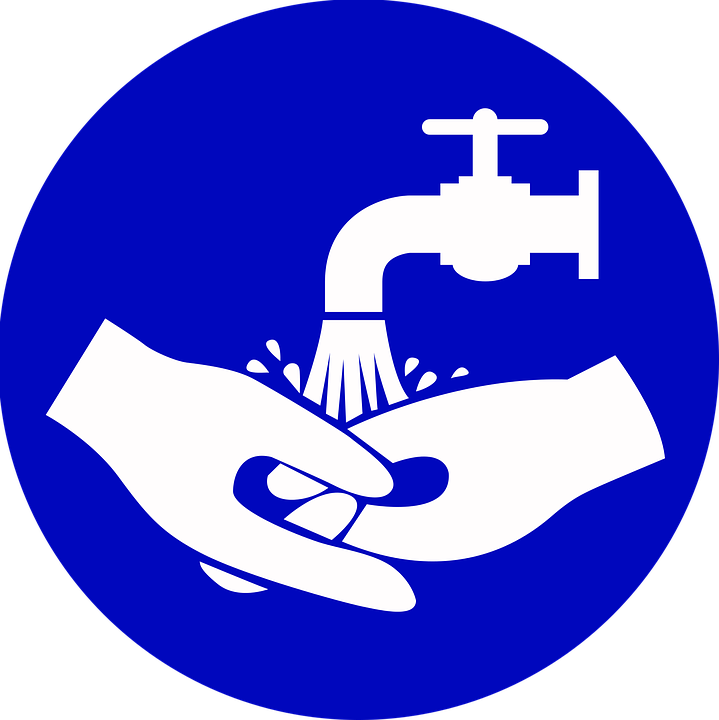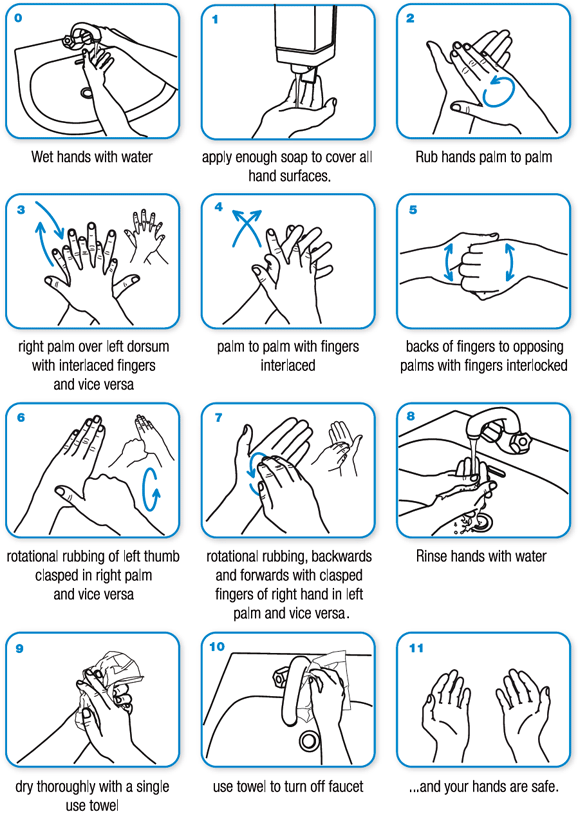
Hand washing is one of the most important steps everyone can take to avoid getting sick and spreading germs to others. Many diseases and adverse health conditions are spread by not washing hands with soap and clean, running water.
Most people are aware of the U.S. Centers for Disease Control and Prevention’s (CDC) three-step method of hand washing to prevent the spread of diseases and saving lives. Their simple, full 20-second method involved scrubbing your hands while singing the “Happy Birthday” song.
A new study published in the journal Infection Control & Hospital Epidemiology compares the CDC’s hand washing method against the World Health Organization’s (WHO) more detailed technique.
Researchers found the WHO’s six-step process is far better at reducing bacteria on hands than the CDC’s more popular three-step routine.
Comparing hand washing methods
Researchers of this recent study observed doctors and nurses washing their hands at a teaching hospital. After the heath care professionals washed their hands, researchers counted the amount of bacteria on their hands.
The WHO’s method of washing reduced bacteria from 3.28 to 2.58 (colony forming units per milliliter) while the CDC’s hand-washing procedure cut bacteria from 3.08 to 2.88. However, the WHO’s more complicated method took more time to complete: 42.50 seconds versus 35 seconds.
This is how the CDC says we should wash our hands:
- Wet your hands with clean, running water (warm or cold), turn off the tap and apply soap.
- Lather your hands by rubbing them together with the soap. Be sure to lather the backs of your hands, between your fingers and under your nails.
- Scrub your hands for at least 20 seconds. Need a timer? Hum the “Happy Birthday” song from beginning to end twice.
- Rinse your hands well under clean, running water.
- Dry your hands using a clean towel or air dry them.
The WHO recommends the following hand washing method:

Photo courtesy of the World Health Organization.
Preventing infections
The study’s lead author, Jacqui Reilly, Ph.D., professor of infection prevention and control at Glasgow Caledonian University in Scotland commented about their study.
“Hand hygiene is regarded as the most important intervention to reduce health care-associated infections, but there is limited evidence on which technique is most effective. This study provides a foundation for effective best practices to implement on the front lines of health care.”
Dr. Philip M. Tierno, professor of microbiology and pathology at NYU School of Medicine and NYU Langone Medical Center, and an avid advocate of hand washing said the following about this recent study.
“The CDC merely brings the person to the concept of when to wash your hands and to use alcoholic gel when soap and water is not available. And then stops their advice. Whereas [this] carries the ball to completion and is therefore more thorough. And it is not at all excessive. It is simply more complete. Hand washing is the simple most important thing a person can do for their health and is within every body’s ability.”